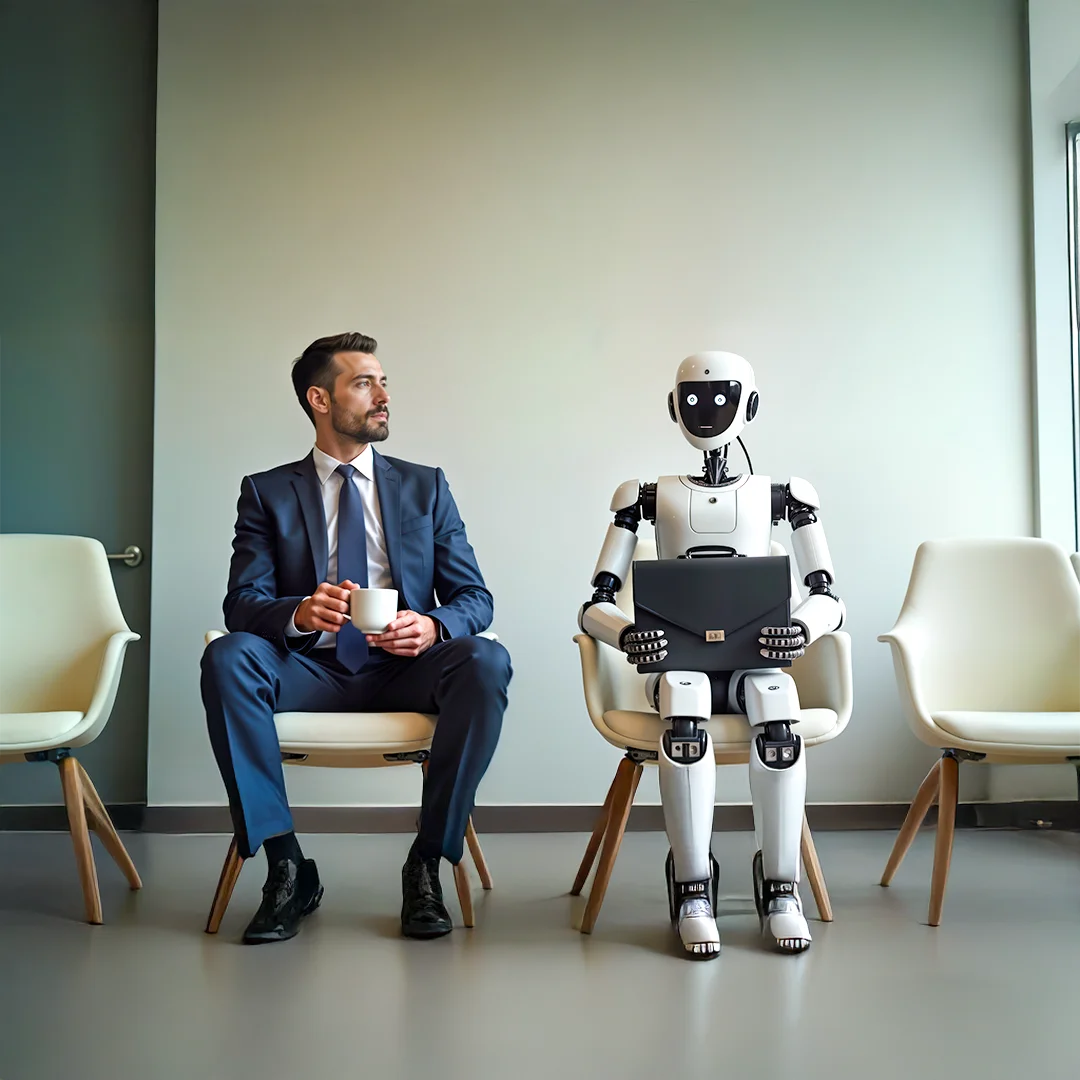Navigating the AI-Infused Hiring Ecosystem
AI is transforming every industry as we know it. This is especially true for the recruiting and staffing industry and the hiring process, but not without complications. As companies and candidates embrace AI tools, the recruitment landscape is changing quickly. It is not a question of whether or not AI will be part of recruiting and hiring; it will be! The question is how it can ethically and effectively be used to improve it.
Augmentation, Not Replacement
Let's emphasize that AI is here to augment human capabilities, not replace them. Many job seekers are already facing a tough market, and frustration is common, especially when applications seem to vanish with no communication from the company. Instead of being fearful of AI, many candidates are leveraging it to tailor their resumes better to job descriptions. On the recruiting side, companies utilize it to sift through applications more quickly.
However, this dual use of AI can create a disconnect that can cause misinterpretation, or recruiters can miss qualities that make a candidate stand out.
Standing Out in an AI-Driven World
To rise above the noise of AI-injected buzzwords, personalization is paramount. There is nothing wrong with leveraging AI to craft your resume because it's a tool to accelerate job hunting. On the flip side, it's not old-fashioned to write it yourself either. No matter which option you take, what matters most is that your personality comes through to combat the "GPT-style" tone.
While using AI for resume writing is useful, customizing your resume to reflect your personality, values, and unique experiences is key to standing out.
The Upside of AI in Hiring
As mentioned, AI can be a powerful ally, and this has been especially true in high-volume hiring. Take Chipotle's AI hiring assistant, "Ava Cado." Since its launch, Ava has reduced hiring time by 75%, streamlining the process and ensuring access to top talent.
Replicating this type of efficiency allows companies to scale quickly while maintaining quality. Even better, recruiting chatbots and AI tools can:
- Speed up the hiring process
- Improve recruiter efficiency
- Help recruiters support more candidates
Where AI Falls Short
Despite the benefits of AI, it has limitations. AI lacks the human intelligence and insight needed to evaluate soft skills, emotional intelligence, and cultural fit. This has also tampered with the candidate's experience, as many have reported negative experiences when interacting with chatbots, specifically during the initial screening and interview process. There are benefits to AI, but it needs to be used with caution.
These issues are becoming more common as the usage of AI increases:
- Fake recruiters reaching out to candidates
- Bot candidates applying for jobs
- False job postings
Spotting Fake Candidates
Now more than ever, recruiting and staffing firms must be vigilant when engaging with candidates. As fake profiles on social media become more prevalent, they can waste valuable company resources when not appropriately reviewed. Below are some red flags to be aware of.
Fake Candidate Red Flags
- Multiple spelling/grammar errors
- Odd phrasing or illogical combinations
- Stock profile photos or emoji avatars
- Profiles listing companies without LinkedIn pages
- No engagement history or recommendations
- AI-generated photos with symmetrical issues or background glitches
- Computerized voices during interviews
“We are hearing with increasing frequency from clients that they are encountering AI related candidate challenges during interviews. These issues range from delays in video interviews, to the use of AI notetaker tools, and even candidates leveraging large language models in an attempt to pass conceptual technical interviews.”
Jon Hartpence | Vice President of Delivery
AI in Interviews: Proceed with Caution
Transparency is vital when using AI in the interview process. It can be used to take notes or handle initial phone interviews. While some companies disclose their use of AI, candidates often feel uneasy when encountering AI in the hiring process because it lacks a personal touch.
That being said, it's still best practice for candidates to avoid using AI tools to answer questions or during live tests. Most companies emphasize not using AI assistance during live interviews to maintain authenticity, as this is a candidate's opportunity to showcase their professional traits and personality characteristics that make them different.
Ethical AI Is Essential
As AI becomes more embedded in the interview and hiring process, ethical considerations should influence how much and how often it is used. It's important that companies prioritize fairness, transparency, and data security. Moreover, AI should enhance, not hinder, the candidate experience.
Depending on usage, AI can be both a friend and a foe in today's hiring world. It can streamline processes and improve efficiency, but it must be used ethically and strategically to benefit both candidates and recruiters. The dynamic between technology and human insight can create hiring experiences that are fast, unbiased, and successful for everyone involved.










